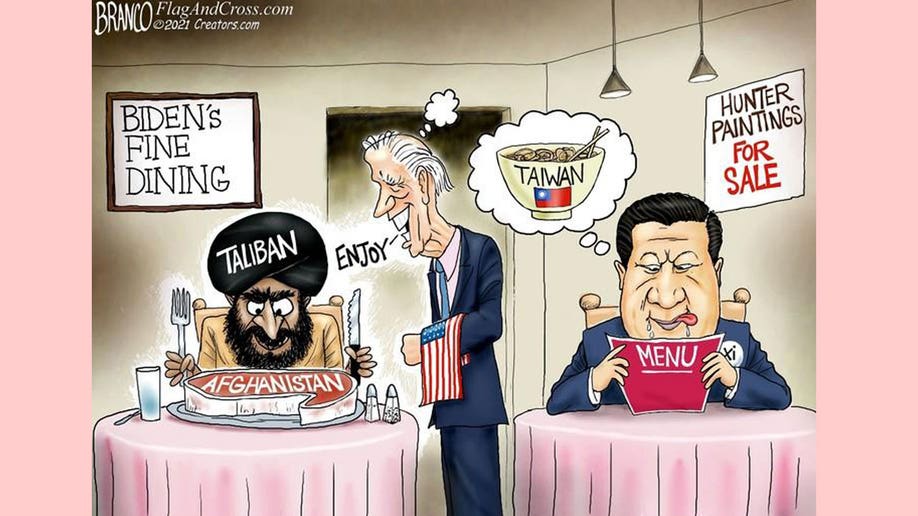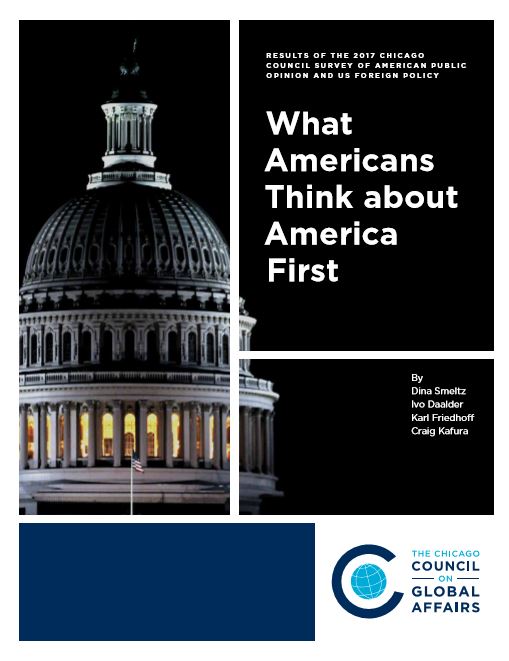What we know about reputation and credibility doesn’t track with the claims of doomsayers. But it also doesn’t accord with those who argue that there’s “nothing to see here.”


What we know about reputation and credibility doesn’t track with the claims of doomsayers. But it also doesn’t accord with those who argue that there’s “nothing to see here.”

Today’s headlines in several international newspapers had to struggle with too many possessive male noun forms: Putin’s mentor’s daughter Ksenia Sobchak announced that she would run for Russian...

“The women who accused Harvey Weinstein did not act as women. Because sexual harassment - well, that's great, honestly. And if you have a role, what difference does it make how you got it. […] In...

This post comes from Bridging the Gap co-director Bruce W. Jentleson[*], Professor of Public Policy and Political Science at Duke University. “Not much” and “less and less” is What Americans Think...
I just finished my cyber security book, provisionally titled Cyber Hype versus Cyber Reality. The feeling of loss has set in. I don’t know what to do with myself now, I am sleeping more than normal (but that could just be jet lag). Working on articles seems like too small a task. Starting a new project seems too big. How to get over this hump? On such occasions, a moment of reflection is order. If you had asked me two months ago, I would have sworn books are the best route to go in academic publishing. The ability to compose on one theme from beginning to end - to construct a near...
This activity comes after students are to have listened to a lecture (slides) about domestic politics helps us understand variation in the likelihood of international conflict. I focused particularly on whether the spread of democracy explains Europe's transformation from one of the most violent parts of the world to one of the most peaceful and how the the fear of coups and rebellion in Sub-Saharan Africa helps explain why there have been so few interstate wars there. I closed out the portion focusing on the democratic peace by discussing how territorial disagreements both promote war and...
At long last, the journal article version* of the research my team conducted on the human security network is published (complete with color-coded tag clouds and network graphs)! International Organization has very kindly agreed to temporary un-gate the article until May 30, so check out the TUG.pdf here! My co-authors Sirin Duygulu, Alexander Montgomery, Anna Rapp and I analyze focus group data to explore how elites in global policy networks make judgments on which issues are worthy of their organizations' attention. We find practitioners pay lip-service to a confluence of factors...
It’s almost that time again: National Day of Prayer is tomorrow. It’s a day for us to come together and pray for those who need praying for.[1] Like last year, I have some political science related prayer requests: Fixed effects and people who ask for them to be included in revisions.[2] Campus parking, any institution at any time. People who don’t read footnotes.[3] The student who thought I’d find it funny if “science” was in quotations every time s/he wrote “political science” in his/her essay. University professors in other disciplines that obviously don’t see any value in the social...
Editor's note: this post originally appeared on my personal blog. It contains some links to posts that appeared here at the Duck. 1. An interview with Jim Fearon about Ukraine. Lots of good stuff here, both about Ukraine and in general. As you'd expect. 2b. Some thoughts from Branislav Slantchev about Russia's Cold War Syndrome. c. Anna Pechenkina reacts. d. Slantchev responds. 3. Still want to read more about Ukraine? Okay, check out Taylor Marvin on why it doesn't make much sense to use force in Syria in order to signal resolve. I agree. Using force in one crisis to influence perceptions...
One of this weeks big news items in international relations was the progress that China and the United States had made in their bilateral climate talks (gated but free registration available). While it is too early to say if the talks result in concrete action, this is the first time since forever that the two largest emitters are recognizing their common interest in cooperating to mitigate climate change. What should we expect? It would be naive to believe that these talks break the gridlock of global climate negotiations. Regardless of what China and the United States discuss in the...
The New Scientist reports that Russia has announced it will deploy fully autonomous lethal robots as guards around missile bases. Several countries already have autonomous sentry technology (the US, Israel and South Korea) but [UPDATED: if this report is accurate, it suggests Russia might be the first country to announce] it will openly deploy such weapons without a human in the loop. The reported announcement comes at an important moment in international norm-building efforts to regulate the deployment of fully autonomous weapons. At the behest of a global civil society campaign, states...
[Note: This is a guest post by Daniel Nexon]. This is a call for nominations for the third annual Yale H. Ferguson Award, presented by the International Studies Association-Northeast. Information below the fold: The Yale H. Ferguson Award, presented by International Studies Association-Northeast, recognizes the book that most advances the vibrancy of international studies as a pluralist discipline. Any book or edited volume published within the field of international studies in the previous calendar year is eligible for consideration. LEARN MORE about Dr. Ferguson at the bottom of the page....